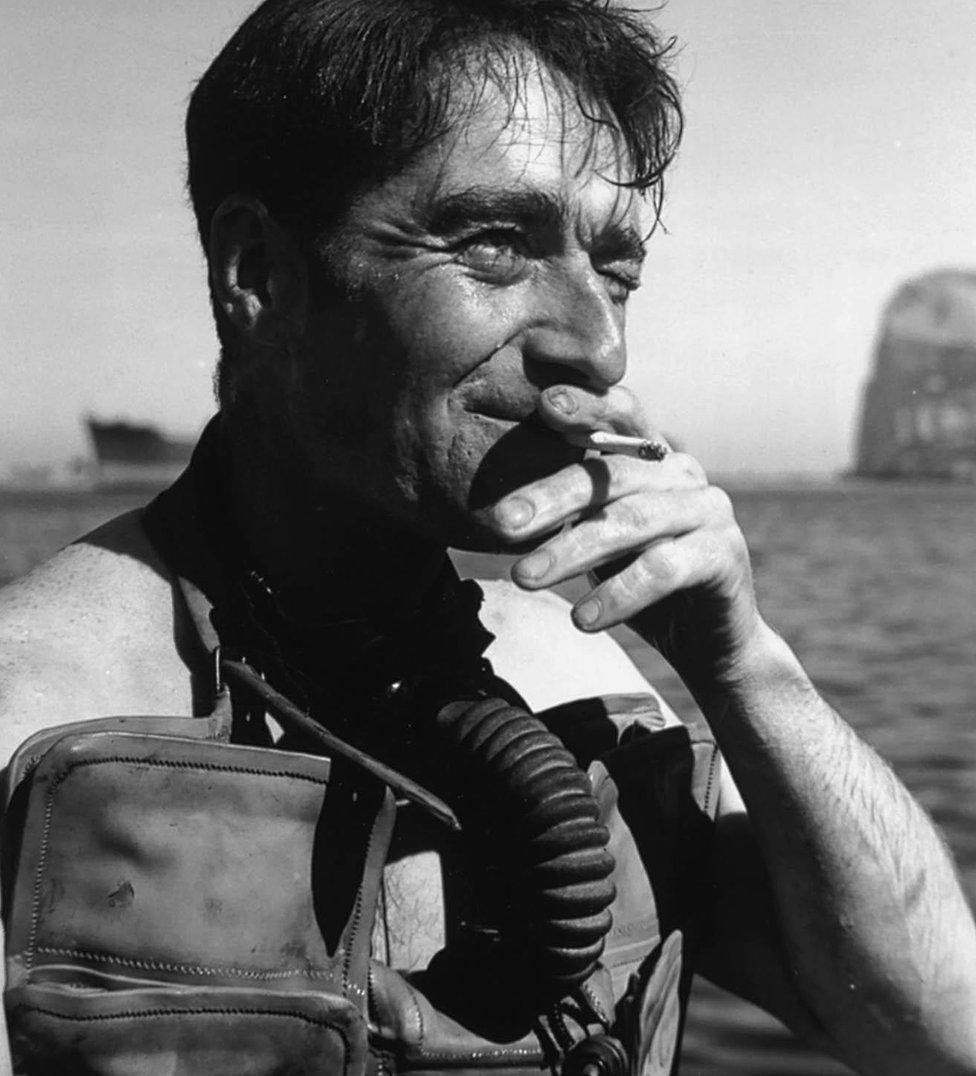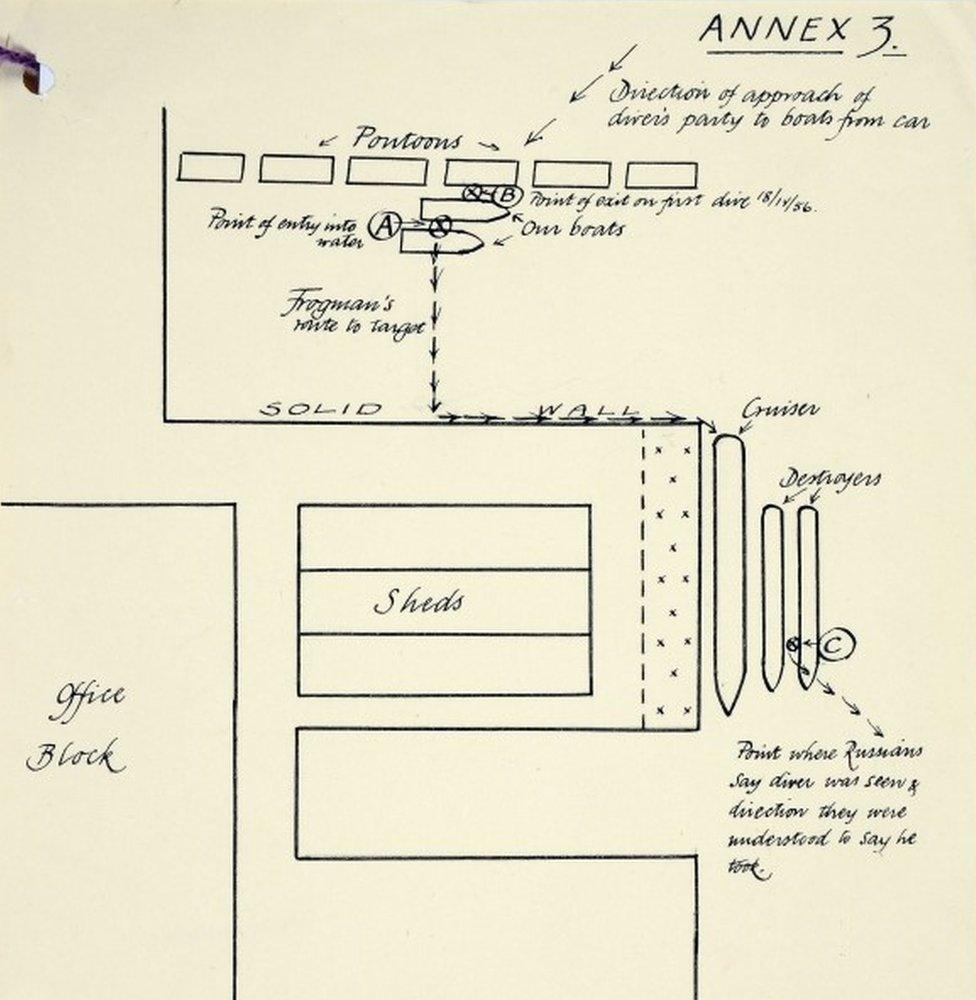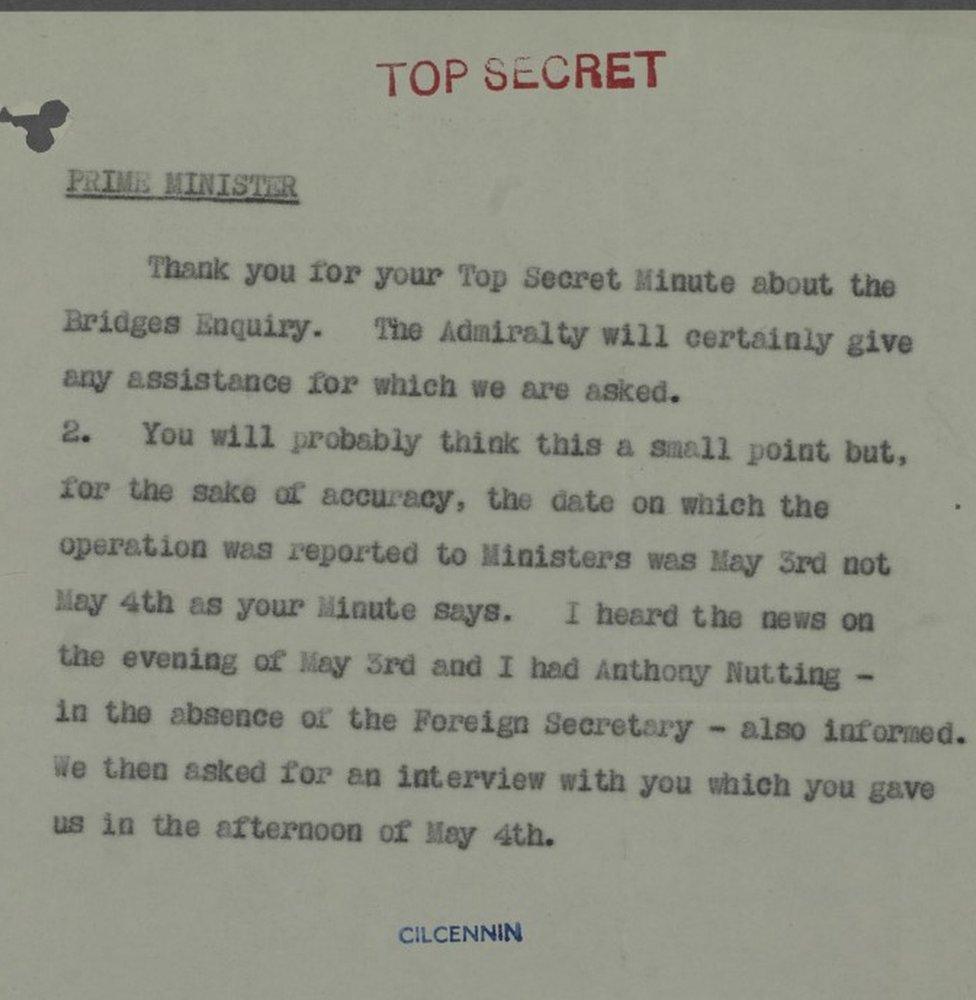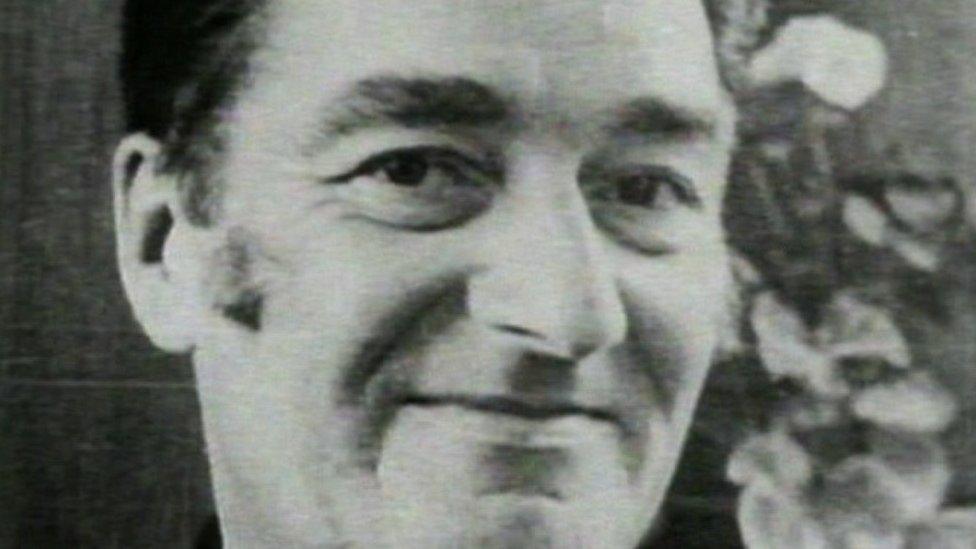Frogman files show blunders surrounding Cdr 'Buster' Crabb's death
- Published

The death of Navy frogman Commander Lionel 'Buster' Crabb is one of the most enduring mysteries of the Cold War era
Previously unseen official papers have revealed mistakes in a Cold War spy operation in Portsmouth in which a Navy frogman died.
Lionel "Buster" Crabb disappeared while spying on a Russian warship in Portsmouth harbour in 1956.
A year after he vanished a headless, handless body washed up in Chichester.
Government documents released by the National Archives at Kew describe the operation as bordering on "criminal folly".
Cdr Crabb disappeared on 19 April 1956 in Portsmouth harbour while spying on the Ordzhonikidze, which had brought Soviet leaders Nikita Khrushchev and Nikolai Bulganin to the UK.
The incident was the inspiration for Ian Fleming's James Bond adventure Thunderball.
Mark Dunton, records specialist at the the National Archives in Kew, said: "While the files don't solve the mystery of exactly how Cdr Crabb met his death, they lay bare all of the blunders surrounding that operation in its entirety for the first time."
The files show Secretary to the Treasury Sir Edward Bridges' report in to the incident concluded it was a "thoroughly bad and unplanned" operation.
"No serious steps seemed to have been taken to conceal the movements of the participants or to plan any cover story," it said.
After he failed to emerge Whitehall officials thought he had either been spotted by the Russians and taken aboard alive, that he had been destroyed by Russian "counter measures", or that he had suffered a "natural mishap".
'Cut Crabb's throat'
Prime Minister Anthony Eden "had made it clear that adventures of a similar nature were forbidden" but the frogman operation went ahead anyway.
MI6 had mistakenly thought a Foreign Office advisor had authorised the activity.

Diagrams and memos from officials of all levels are included in the files

The Prime Minister Anthony Eden was eventually told about what had happened on 19 April
The files show the efforts of the security services to spy on the visiting Russians and that they considered hiding microphones in Claridges.
They also reveal Bernard Smith, the MI6 agent handling Crabb, had used both of their full names and addresses in the registration book of a Portsmouth hotel before the mission.
A local police officer made the "regrettable" decision to rip out the relevant pages, fuelling interest in the case from the press.
There was also concern that the Russians could have used Crabb's body for propaganda purposes.
As they cobbled together a hasty cover-up and a plan to keep the story secret, mandarins discussed the ramifications of an inquest, including efforts they could be forced into to find a body.
A secret draft paper for ministers said: "Any thorough search, involving diving and dredging would be an extensive and expensive operation... but a search by divers along the face of the jetty could be done in a week (cost about £60). This could not be kept secret."
Records of meetings also show there was "consternation" at the highest levels of government at the debacle.
The case has sparked widespread interest and theories as in 2007 a retired Russian diver claimed he cut Cdr Crabb's throat in an underwater fight after catching him attaching a mine to the warship.
A theory the frogman had defected gained ground when some of his associates in MI5 and MI6 turned out to be double agents.
They included Sir Anthony Blunt, who was unmasked as a Soviet Spy in 1979.
- Published4 December 2014
